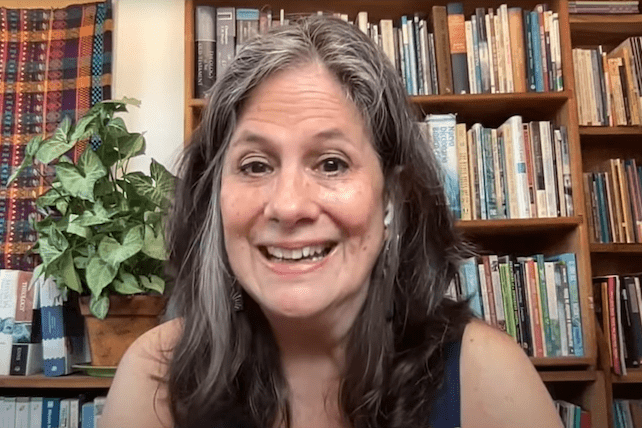At this week’s Fourth Lausanne Congress on World Evangelization (L4), a speaker’s words about the Middle East conflict offended some delegates, prompting the Congress to issue an apology.
On night two of the weeklong gathering—held in Seoul, South Korea—Dr. Ruth Padilla DeBorst spoke about injustice. The associate professor of world Christianity at Western Theological Seminary in Holland, Michigan, explored injustices during the time of Micah and compared them to modern-day suffering.
“There’s no room for indifference toward all who are suffering the scourge of war and violence,” DeBorst said near the end of her presentation Monday (Sept. 23). “The world around the uprooted and beleaguered people of Gaza, the hostages held by both Israel and Hamas and their families, the threatened Palestinians in their own territories.”
RELATED: Learnings From Lausanne, Part 1: A Taste of Heaven
Because L4 emphasizes unity, community, and collaboration, some delegates found DeBorst’s words too political and divisive. On Sept. 25, Congress Director David Bennett emailed an apology letter to the gathering’s 5,000 delegates. Speakers represent “a variety of perspectives” and “sometimes disagree with one another,” he wrote.
Lausanne Congress Director Apologizes for ‘Pain and Offense’
In his email, Bennett wrote:
As Congress director, I would like to offer an apology for a presentation this week which singled out “dispensational eschatology” in a critical tone, implying that it contributed to violence and injustice, and which failed to note that many theologies have been misused and misapplied as justifications for violence. That same presentation referred to the suffering of the Palestinian people, but did not express comparable empathy for the suffering of Israeli people, nor adequately express concern for many other peoples and nations of the world that are currently in the throes of violent conflict.
Speakers don’t “represent an ‘official’ Lausanne position in their statements,” Bennett said. And although officials review scripts in advance, sometimes we “[fail] to review carefully enough in advance the precise wording or tone used by a presenter, or to anticipate how their words may be received by the diversity of the audience they are addressing.”
Bennett concluded:
We have become aware of significant pain and offense experienced at this Congress from those in dispensational theological contexts, those who are Jews, and those engaged in ministries to Jews and/or in Israel. Our Lausanne team, including me, failed to review the wording of the presentation carefully enough in advance, or to anticipate the hurts and misunderstandings it would cause. As your brother in Christ, and on behalf of our Lausanne leadership, I ask for your forgiveness.
L4 Speaker Ruth Padilla DeBorst Responds
On Sept. 25, DeBorst also released a statement about the uproar. She acknowledged the challenge of having only 15 minutes to address “so many expressions of injustice in our world,” noting, “Perhaps, I should never have accepted the invitation!”
DeBorst wrote, “God hears the cries of all who suffer injustice,” and Christians “weep with all who suffer war the world round.” Because people have different experiences and contexts, she said, Jesus’ followers “can only gain a fuller picture by listening humbly to one another” as we “actively seek justice.” She continued:
In that vein, in my talk on justice I stated that what makes God’s people such are not superficial expressions of religious piety, “Christianese” jargon, worship jingles, or colonialist theologies that justify and finance oppression under the guise of some dispensational eschatology. This is not in any way a blanket dismissal of dispensational theology and, even less, of sisters and brothers who suscribe (sic) to that stance. For the pain my statement might have caused, I am sorry. What I am naming is the troubling theological rationale sustained by some people to perpetrate injustice against certain other people.
The professor said she zeroed in on the Middle East conflict, which is nearing the one-year mark, because it’s “a current justice issue…to which we, as Christians, have a particular responsibility.” She wrote:
Truly, the Hamas attack almost a year ago was abhorrent and absolutely reprehensible, and truly people who live in Israel, Jewish, Palestinian and others are being threatened as I write. Their pain is our pain. At the same time, the long standing suffering of Palestinians has been compounded by the attacks on Gaza since October 7 where over 40,000 people have been killed, many of them, children. Additionally, settler attacks have only increased in the West Bank. Their pain is our pain—or it should be. However, far too many evangelicals around the world a-critically “stand with Israel,” and remain oblivious to the suffering Palestinians. This injustice must be named.
RELATED: I Went to Israel Looking for Moral Clarity. Here Is What I Found.
During her speech, DeBorst also addressed wealth inequality, poverty, the gender pay gap, and church sexual abuse. Followers of Jesus must “unmask religious oppression,” she said, discarding ”self-sufficient pride” and ”idolatries that sit at the root of injustice.”

